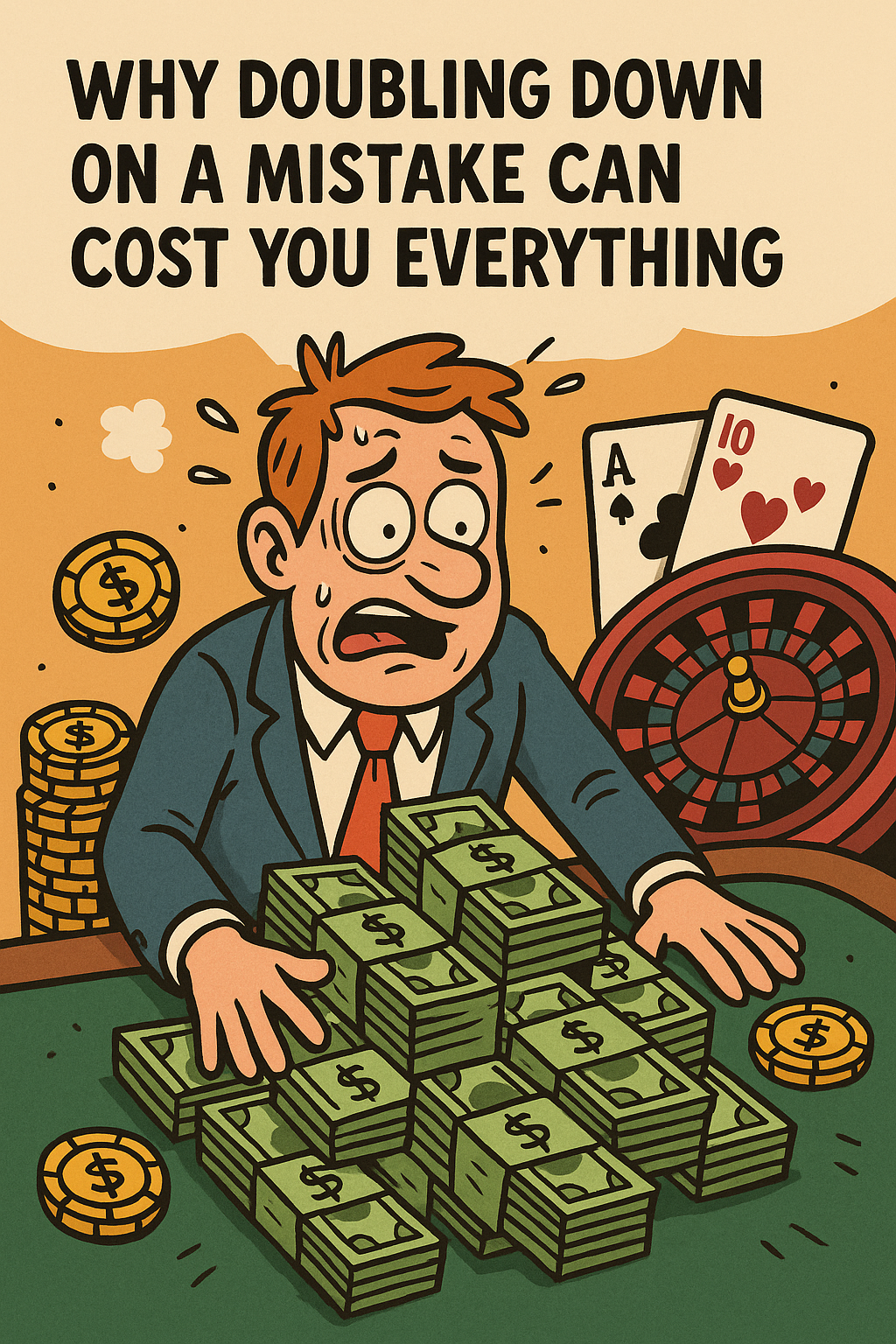We’ve all been there — staring at a loss, a bad decision, or a wrong turn, thinking: “If I just go big now, I can fix it all.”
But here’s the hard truth: betting big to undo a mistake often creates a bigger one.
This is exactly why the saying goes:
“Never bet big just because you think this is the way to fix a mistake.”
🧠 The Psychology Behind It
When people lose, they often act emotionally instead of logically. It’s a reaction called “revenge behavior” — a desperate attempt to recover quickly.
Gamblers do it. Traders do it. Even business owners do it.
In that emotional state, your goal shifts from “making smart decisions” to “proving you were right.”
And that’s dangerous.
📉 Real-Life Example: A Trader’s Lesson
Imagine a trader who loses $1,000 in the morning because of a bad gold trade.
Instead of stepping back and reassessing the market, they say to themselves:
“I’ll open a bigger position now and make it all back.”
They enter a huge trade, ignoring risk management, hoping for a miracle.
But the market doesn’t care about emotions. It moves the other way.
Result:
- First loss: $1,000
- Second “revenge” loss: $4,000
- Total: $5,000 gone — not recovered.
What could’ve been a small setback turned into a major blow simply because of an emotional decision.
🏢 Business Example: Doubling Down on a Failed Product
A small café launches a fancy smoothie that no one buys. Instead of learning from it, the owner invests even more money in marketing the same failed drink, thinking bigger exposure will fix it.
Weeks later, not only has the product not sold — they’ve burned through their marketing budget too.
The problem wasn’t visibility — it was the product itself.
🧭 The Smarter Move: Pause. Assess. Adjust.
When faced with a loss, the most powerful action is often to do nothing immediately.
- Step back.
- Review what went wrong.
- Adjust your strategy.
- Take your next step only when logic, not emotion, leads the way.
This isn’t about being weak. It’s about being wise.
✨ Final Thought
Big mistakes aren’t fixed by bigger risks.
They’re fixed by clarity, discipline, and patience.
Think of every setback as a teacher, not a trap.
The more emotionally detached you are from the mistake, the more power you have to turn it into a win — the right way.
Important Takeaway:
The next time you feel the urge to “go all in” to fix a loss, remember — doubling down on a mistake rarely saves you. It usually sinks you deeper. Breathe. Step back. Then act smart.

